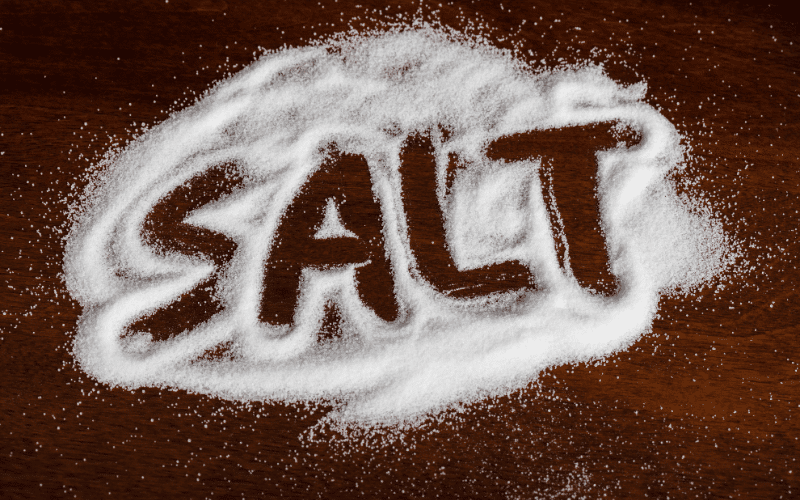20. Table Salt – A Common Culprit for Kidney Strain

Last on our list, but certainly not least, is table salt, or sodium chloride. This is not a food in itself, however, it is the only mineral used by humans for food in a “natural” form, practically without processing. It is a common ingredient in many dishes. While it may seem innocuous, excessive salt intake can be a significant threat to your kidney health.
The main issue with table salt is its high sodium content. Consuming too much sodium can increase your blood pressure, which can, over time, damage your kidneys. It’s estimated that most people consume more than the recommended daily limit of sodium, and table salt is one of the main sources.
The trouble with table salt is that it’s not just in your salt shaker. It’s hidden in many foods we consume daily, including bread, cereals, and even sweet baked goods. This can make it easy to inadvertently consume more sodium than you realize. Moreover, excessive salt consumption can interfere with the balance of minerals in your body, including calcium and potassium. This can have indirect effects on your kidneys and overall health.
While completely eliminating salt from your diet is not necessary or recommended, moderating your intake can go a long way in protecting your kidneys. Using herbs and spices for flavoring, opting for low-sodium versions of your favorite foods, and making a habit of checking food labels can all help in reducing your sodium intake.
And as always, while this guide provides information on how different foods can impact your kidney health, it’s important to consult a dietitian or nutritionist for personalized advice. They can provide guidance based on your specific needs and health condition. After all, what’s best for your kidneys and overall health is a diet that’s tailored just for you. (20)